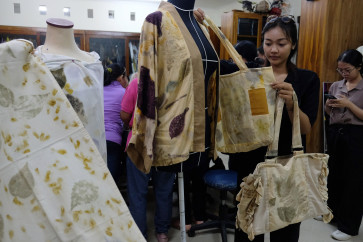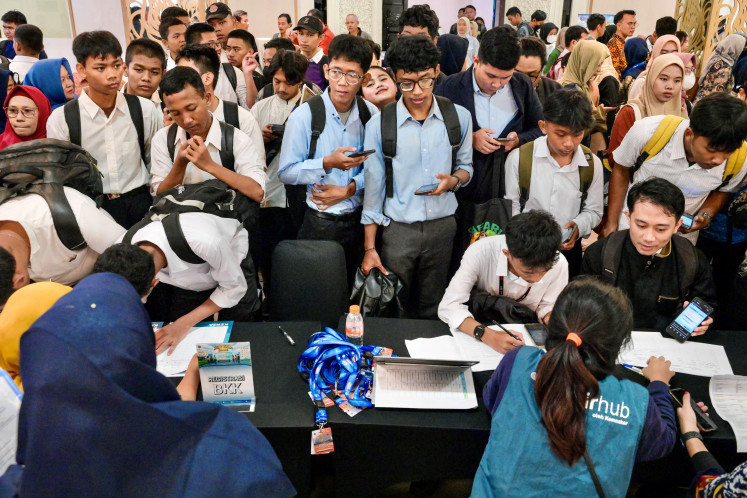Popular Reads
Top Results
Can't find what you're looking for?
View all search resultsPopular Reads
Top Results
Can't find what you're looking for?
View all search resultsCOVID-19 increases risk of blood clots for up to six months: Study
They found that those with COVID had a higher risk of pulmonary embolism, a blood clot that blocks arteries in lungs, up to six months after infection.
Change text size
Gift Premium Articles
to Anyone
P
eople who have had COVID-19 have an increased risk of developing serious blood clots for up to six months after getting infected, even in mild cases, a study said on Thursday.
Previous research had indicated that COVID raises the risk of blood clots, but the new study in The BMJ medical journal shows how long the threat can linger
To find out, researchers compared data from more than 1 million people in Sweden's national registries who contracted COVID from February 2020 to May 2021, with a control groups of over 4 million who did not test positive.
They found that those with COVID had a higher risk of pulmonary embolism, a blood clot that blocks arteries in lungs, up to six months after infection.
There was also an increased danger of deep vein thrombosis – a blood clot normally in legs – up to three months after contracting COVID.
After adjusting for a range of factors, they found a 33-fold increase in the risk of pulmonary embolism for those who had COVID, as well as a fivefold rise for deep vein thrombosis.
People who suffered severe symptoms from COVID those with pre-existing conditions were more at risk, the study found.
But even people who had mild cases that did not need hospitalization had a higher danger of pulmonary embolism and deep vein thrombosis.
The chance of clotting was higher during the first wave of the pandemic than later stages, which the researchers said was due to vaccine coverage and better treatments as time went on.
The researchers said their findings had "major policy implications", calling for more treatment to prevent blood clots from developing, particularly in high risk cases.
They also emphasized that their results highlighted the importance of getting vaccinated.
In a linked editorial, researchers from the University of Glasgow not involved in the study said it "reminds us of the need to remain vigilant to the complications associated with even mild SARS-CoV-2 infection".
In a related development, top United States Food and Drug Administration (FDA) officials on Wednesday said the agency was aiming to decide by June whether to change the design of COVID-19 vaccines in order to combat future variants, even if it does not have all the necessary information to measure their effectiveness.
"We're going to have to think about this in a way that is less than optimal because we're not going to have all the data that we'd like to have," Peter Marks, director of the FDA's Center for Biologics Evaluation and Research, said at a meeting of the agency's scientific advisers to discuss the issue.
Marks also conceded that future COVID booster campaigns likely need to be less frequent. The FDA recently approved a fourth round of shots for older Americans.
"We simply can't be boosting people as frequently as we are and I'm the first to acknowledge that this additional fourth booster dose that was authorized was a stopgap measure," he said.
The panel of outside experts was convened to discuss how and whether to use additional vaccine boosters after data from Israel showed a fourth dose lowered rates of severe COVID-19 among older people.
The FDA said it was hoping next generation vaccines would be able to tackle multiple variants.
"Pivoting toward a monovalent vaccine directed at something like Omicron runs the risk of really narrowing the breadth of coverage for people who might be getting that modified vaccine as their primary series," FDA scientist Doran Fink said.
The advisory panel did not vote on any specific vaccines, but the agency said its discussions could help forge a strategy for future use of booster doses.
Many of the outside scientists raised concerns that the agency's preferred timeline would not allow manufacturers to run full trials to generate clinical data on a new vaccine’s effectiveness. They may instead have to rely on comparing immune responses generated by new vaccines to the old ones.










